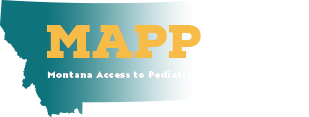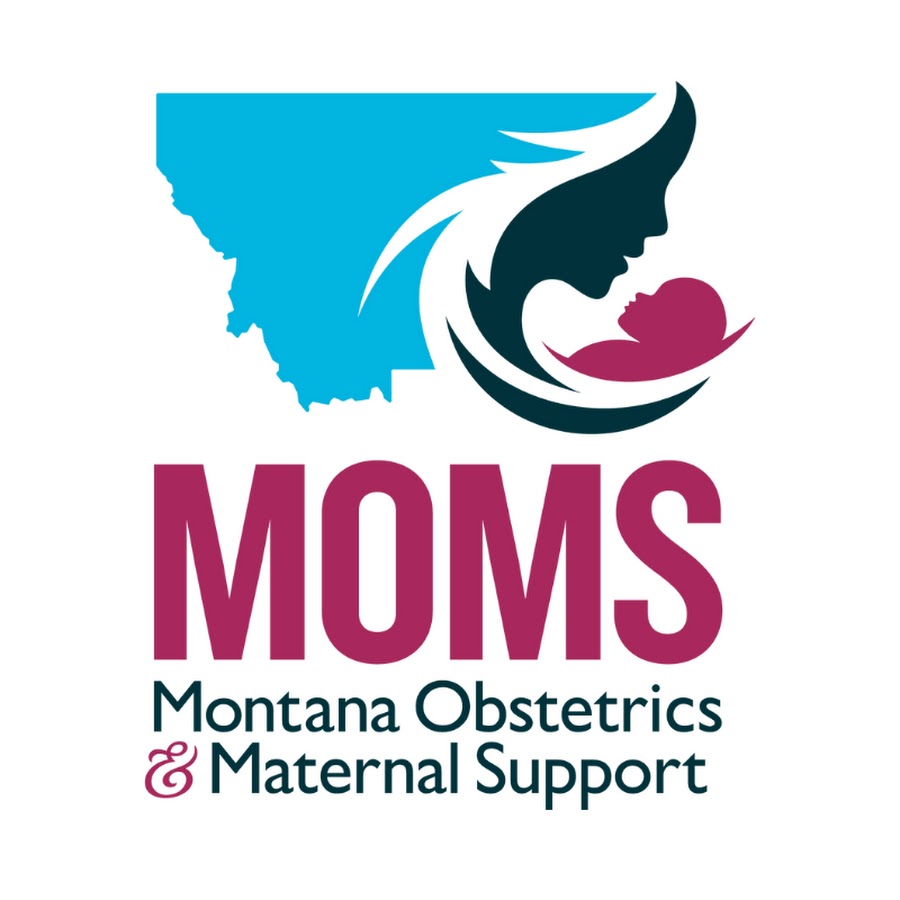Evaluation

Rural Institute program evaluation services are growing.
Current Evaluation Programs
Improving behavioral health resources access for Montana’s children
The Rural Institute provides evaluation support to Montana Access to Pediatric Psychiatry Network (MAPP-Net). Support includes ongoing needs assessment, project outcome evaluation, and quality-improvement evaluation. The MAPP-Net project is a partnership with the Billings Clinic and the Montana Department of Public Health and Human Services.
Contact: Kaitlin Fertaly
Evaluating Montana’s maternal supports
The Rural Institute is the research and evaluation partner for the Montana Obstetrics and Maternal Supports Evaluation (MOMS) program. The MOMS program:
- Aims to improve maternal health outcomes, including the prevention and reduction of maternal mortality and severe maternal morbidity
- Establishes a state-focused Maternal Health Task Force
- Improves state-level data surveillance
- Promotes and executes innovation in maternal health service delivery
Contact: Annie Glover
Identifying barriers to postpartum contraception
The postpartum period is a critical time period for patients to access contraception and family planning options that allow them to control the timing and spacing of their future pregnancies. To facilitate access to voluntary family planning services during the postpartum period, the Montana Obstetrics and Maternal Support (MOMS) project is researching the following questions:
- What general attitudes and beliefs do healthcare providers have toward providing contraception in the postpartum period?
- What do providers say are the primary barriers and facilitators to providing immediate postpartum contraception?
- Do providers in Montana follow best practices around family planning counseling and services for all patients, regardless of race, socioeconomic status, and disability status?
Contact: Annie Glover
The Montana Obstetrics and Maternal Support (MOMS) project housed at Billings Clinic has partnered with One Health and Tree of Life Doula Services to train recovery doulas. The training program focuses on improving maternal and infant health outcomes in Montana.
The Rural Institute will evaluate the success of the recovery doula program.
Contact: Jessica Liddell
The Montana Obstetrics and Maternal Support (MOMS) project is conducting a survey to assess patient experiences related to prenatal, delivery, and postpartum care. The survey focuses on rural maternity experiences, decision-making, respectful patient-provider interactions, and perceptions of racism or discrimination. The study results will inform future MOMS program priorities and activities.
Contact: Carly Holman
Montana has 34 critical access hospitals without an obstetric unit. Due to distance to care, pregnant people in rural communities might seek care or deliver at one of these non-birthing hospitals. Limited information is available on emergency obstetric services at hospitals without obstetric units. Montana decided to assess emergency obstetric services through the Montana Obstetrics and Maternal Support (MOMS) project. The information will identify ways to support rural hospitals without regular obstetric services to provide care for emergency births.
Contact: Annie Glover
The Maternal Obstetrics and Maternal Support (MOMS) program research team is studying transport and referral during obstetric emergency events. Medical providers will be asked to describe their referral and transport processes, challenges faced during referral and transport, and how the staff is impacted by the vicarious trauma of an obstetric emergency. This information will be shared with key stakeholders to discuss how to improve communication and the coordination of care during an obstetric emergency.
Contact: Kaitlin Fertaly
Addressing maternal and newborn exposure to alcohol and drugs
The Empaths program has providers ask pregnant patients 5 questions about alcohol and drug exposure at their first prenatal visit, a visit between 28 and 32 weeks, and their first postpartum visit. Healthcare providers refer patients who answer yes to at least one question to a care manager who provides further assessment, brief intervention, and referral to treatment. Patients get connected to services and support to promote healthy outcomes for moms and babies. The Montana Obstetrics and Maternal Support (MOMS) project, which is associated with the Rural Institute, is evaluating the Empaths program.
Contact: Sarah Reese
Evaluating rape prevention efforts in Montana
The Centers for Disease Control and Prevention’s (CDC) Rape Prevention Education (RPE) grant funds the Montana Sexual Violence Prevention and Victim Services (SVPVS) program. The SVPVS program aims to reduce sexual violence through prevention efforts such as teaching skills, supporting women, and creating protective environments. Annie Glover is the principal investigator of the project.
Contact: Annie Glover
Improving Hepatitis C testing and treatment systems
The Rural Institute is conducting a study to assess barriers to Hepatitis C virus (HCV) screening and testing. Information on HCV referrals and recommendations, and ways to improve HCV screening and testing will be collected as well. The study results will be used by Montana DPHHS to address barriers to HCV testing and treatment. Findings will also be shared with stakeholders such as people living with HCV, providers, and policymakers.
Contact: Kaitlin Fertaly
Evaluating the Idaho School Readiness program
Idaho State University and the Idaho Association for the Education of Young Children were awarded the Preschool Development Grant Birth through Five (PDG B-5) renewal grant. The Rural Institute will develop and administer the Program Performance and Evaluation Plan. Evaluation areas include monitoring the services delivered, coordination across service partners, and the overall effectiveness of each focus area.
Contact: Kaitlin Fertaly
Evaluating the Community Health Worker Program
Partnership Health Center, All Nations Health Center, and the Missoula City-County Public Health Department are working together to improve health equity and support community resiliency.
The three-year Community Health Worker (CHW) Program will connect marginalized groups (low-income families, people experiencing homelessness, people with an increased risk of COVID-19, and the Indigenous population) with health and social support services in Missoula.
The Rural Institute will evaluate the program. The evaluation will include input from program managers, community health workers, and community residents. Data will be collected through interviews, focus groups, and participant observation. The evaluation will be used to understand CHW program outcomes, make recommendations for improvement, and improve access to services among marginalized groups.
Contact: Kaitlin Fertaly
Evaluating early intervention services
The Montana Milestones / Part C program supports families who have children under the age of 3 with developmental delays or disabilities. The Rural Institute has been funded to gather feedback on the program’s delivery of early intervention services to infants and toddlers and their families. The Rural Institute will:
- Streamline the Part C outcome survey sent to Montana families
- Analyze data collected from the survey
- Help the Part C program identify areas for improvement
Contact: Allison Wilson
Improving agency capacity to implement multi-tiered systems of support (MTSS)
Facilitate periodic agency capacity assessments and action planning to improve MTSS implementation as part of Montana's statewide personnel development grant initiative.
Contact: Kari Harris
Past Evaluation Programs
Investigating the needs of Montana’s DIS workforce
2021 - 2022
The Rural Institute Evaluation Team will conduct a needs assessment to describe the current disease intervention specialist (DIS) workforce in Montana and identify training needs.
The needs assessment will be conducted through interviews and surveys with 59 county and tribal public health departments. The survey will assess DIS workforce needs such as the number of positions, number of vacancies, and training needs.
Contact: Kaitlin Fertaly
Evaluating HIV services and supports in Montana
2021 - 2022
The purpose of the HIV and Hepatitis C (HCV) needs assessment is to understand the HIV/HCV testing, prevention, and treatment needs of people living in Montana. Specifically, information from this assessment will be used to:
- Understand the landscape of HIV/HCV care in Montana
- Identify barriers to accessing and maintaining HIV and HCV prevention, testing and treatment services
- Improve the HIV and HCV care continuum in Montana
Contact: Kaitlin Fertaly
A family-centered app to improve collaborative healthcare decision making
2018 - 2020
The Rural Institute partnered with Montana Pediatrics and several funders to develop the Montana Pediatric Medical Passport, or MP2. MP2 is a cloud-based app that facilitates communication at critical health-need moments, such as emergency room visits, to improve care coordination for children with disabilities. MP2 uses telemedicine to bring healthcare providers and families together to make medical decisions.
The MP2 team surveyed over 300 families and 250 healthcare providers across Montana to gather insight about app features and functions. The information was incorporated into an app prototype.
Identified the need for home visits for pregnant women & families with children 5 and under
2019 - 2020
The Rural Institute completed a one-year state contract to assess the Montana Healthy Families (MHF) Home Visiting Program which supports voluntary home visiting services for at-risk pregnant women and parents with young children.
Contact: Kaitlin Fertaly
Assessed Montana’s maternal & child health population needs, & the capacity to meet those needs
2019 – 2020
The Rural Institute was awarded a one-year state contract to assess the Title V Maternal and Child Health (MCH) Services Block Grant Program. Title V MCH Block Grant is a federal program that provides support for improving the health and well-being of mothers, children (including children with special health care needs), and their families.
In Montana, Title V Maternal and Child Health programs are managed by the state’s Department of Public Health and Human Services. The need assessment:
- Reviewed the health needs of Montana’s mothers, children, and families
- Examined statewide capacity to address these needs and identified priorities for the coming 5 years
- Provided a benchmark for states to assess their progress during the previous 5 years
Contact: Kaitlin Fertaly
Assessed the need for and access to primary healthcare services across the state
2020 – 2021
The purpose of the Montana Primary Care Needs Assessment was to better understand the performance and challenges of the primary health care system in Montana.
The Montana Primary Care Office (PCO), a part of the Montana Department of Health and Human Services (DPHHS), works to increase and maintain access to primary and preventative health care to improve the health outcomes of underserved and vulnerable populations. The Rural Institute worked with the PCO to conduct a 5-year needs assessment. The assessment evaluated the primary care needs of Montana’s vulnerable groups including the aging population, veterans, and the uninsured. The needs assessment also examined the health care workforce in Montana.
Contact: Kaitlin Fertaly


